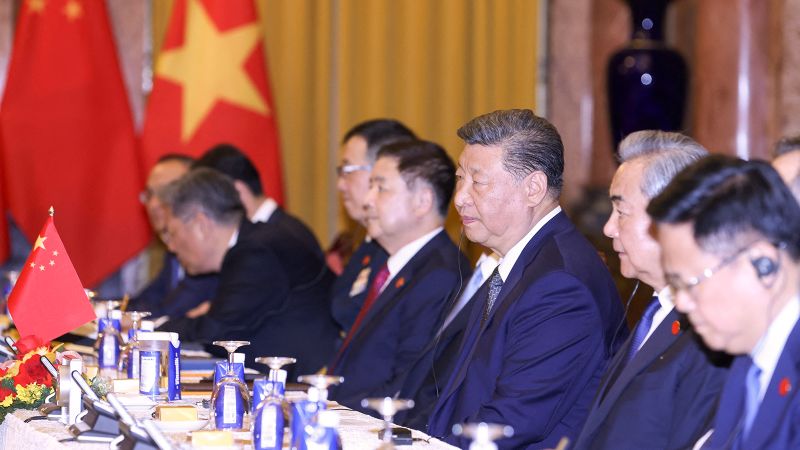In recent days, Beijing has taken a firm stand against the increasing pressure exerted by the United States to restrict trade with China. As the trade relationship between the two superpowers continues to strain, Chinese officials are warning global trading partners to resist any temptation to succumb to pressure from the Trump administration. Notably, President Donald Trump has proposed a “reciprocal” tariff system, indicating that nations willing to cooperate could potentially find relief from tariffs imposed on Chinese imports. However, this proposal, laden with strategic implications, has raised alarms in Beijing.
During a press conference on Monday, a spokesperson for China’s Commerce Ministry addressed the media regarding developments related to U.S. tariff negotiations. The spokesperson asserted, “Appeasement does not bring peace, and compromise does not earn respect.” This statement reflects China’s resolute stance against what it perceives as coercive tactics utilized by the U.S. to gain leverage over its own economy. The Chinese representative also articulated the view that efforts to seek short-term benefits for individual countries at the expense of China would ultimately result in harm to all involved parties.
Further emphasizing China’s unwillingness to concede its economic interests, the spokesperson remarked, “Seeking temporary self-interest at the expense of others — in exchange for so-called exemptions — is like asking a tiger for its skin. In the end, it will achieve nothing and harm both others and oneself.” This metaphor poignantly underscores China’s belief that cooperation based on self-serving principles will inevitably lead to mutual detriment. Additionally, the spokesperson warned that any agreements that undermine China’s interests would be met with firm “reciprocal countermeasures” from China, signaling an intent to retaliate if necessary.
The current state of negotiations, complicated by the U.S.’s aggressive tariff policies, reflects escalating tensions. A significant move came on April 9, when President Trump announced a 90-day suspension of “reciprocal” tariffs on most countries. However, he simultaneously shifted the center of attention in the trade conflict directly to China by raising tariffs on Chinese imports to an astonishing 145%. This bold escalation poses serious questions about the future landscape of international trade and cooperation.
Amid these developments, The Wall Street Journal reported last week that the Trump administration was utilizing ongoing tariff negotiations as a means to persuade U.S. trading partners to restrict their dealings with China. According to unnamed sources familiar with the conversations, the goal is to form a coalition against China’s economic practices—a move perceived by Beijing as an attempt to isolate it on the global stage. The plan reportedly involves extracting commitments from these nations to limit trade with China in exchange for relief from the tariffs that the White House has imposed.
Specific actions that the U.S. reportedly seeks from its partners include preventing Chinese goods from being transported through their territories, barring Chinese companies from establishing operations in their countries to circumvent U.S. tariffs, and avoiding the absorption of Chinese low-cost industrial products into their economies. Such propositions underscore the broader strategy of pressuring allied nations to align their economic interests with U.S. policy.
As the narrative of this trade conflict unfolds, the implications for global trade dynamics cannot be understated. Nations caught in the crossfire of the U.S.-China trade war must navigate a complex web of economic interests, national policies, and international relations. Observers continue to monitor the situation closely, recognizing the potential ramifications for businesses, consumers, and economies worldwide. This developing story is subject to rapid change, and all parties involved are keenly aware that the stakes have never been higher in the realm of international trade.



